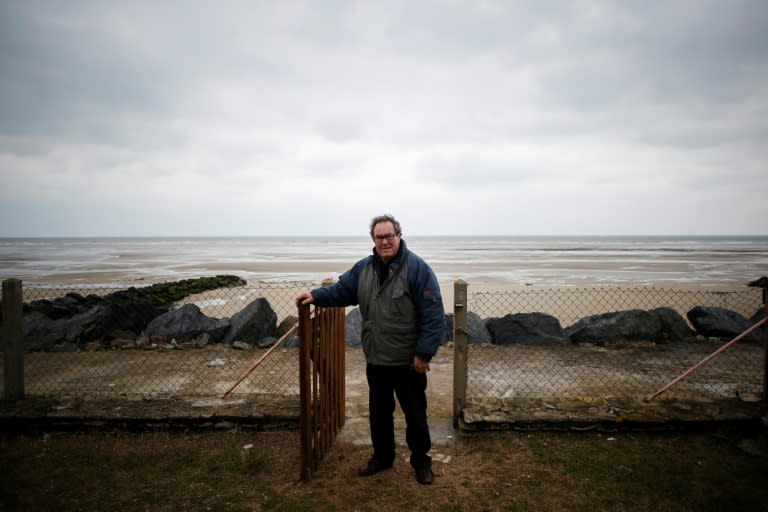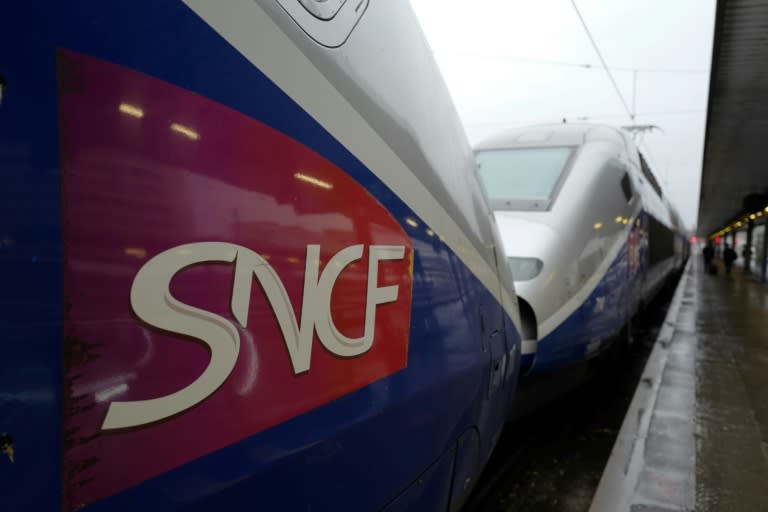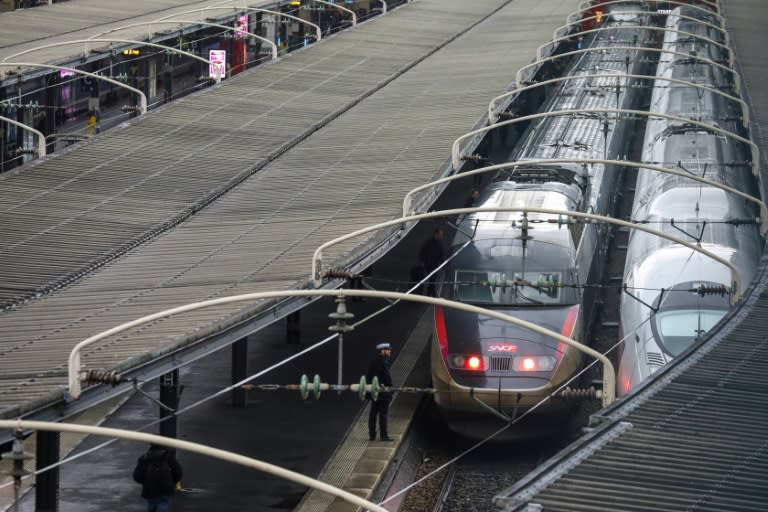French railway workers: end of the line for historic rights?
After more than three decades of driving trains across western France, Serge Letourneur was ready for a change, so he retired at age 50 and took up a new hobby brewing cider. He now keeps several bottles on hand at his beach house, made from an old train wagon from the state rail operator SNCF which looks out on the blustery Channel sea along France's northern coastline. "The apples are from my field, very sweet: I think I have the best cider in the region," a visibly proud Letourneur says in his gruff Normandy accent. Early retirement from a job guaranteed for life is a perk for nearly every SNCF employee -- one that France's President Emmanuel Macron has in his sights as he gears up for the next major battle in his reform efforts. Labour unions have derailed such ambitions before, saying their privileges are justified by chaotic work schedules, nights often spent away from home and pay that barely tops the minimum wage during the early part of many workers' careers. A campaign kicks off Thursday as SNCF unions add their heft to a major day of protests by public-sector workers denouncing low pay and plans to increase the use of short-term hiring and outsourcing. And rail workers will not stop there. They have also called three months of intermittent strikes over the plan to alter the historic privileges of SNCF workers contained in their special work status, and to not give new hires the same benefits. But Macron, who has vowed to cut 120,000 public-sector jobs by 2022, is betting that public opinion is on his side for tackling the creaky rail system that is increasingly prone to breakdowns and delays. His government has dismissed warnings that the strikes could be a rerun of 1995 protests that forced the rightwing government at the time into a U-turn on pension reforms. "We'll keep going," Economy Minister Bruno Le Maire vowed on Sunday. Even Letourneur, a rail worker like his father and grandfather before him, realises it's hard to justify the special status for rail workers dating from an era of six-day weeks and coal-fired locomotives. Since the 1970s, electrification of the network and the introduction of modern technologies have ended the days of back-breaking and often dangerous work. "In '95 I went on strike, because I was convinced we needed to keep our status," Letourneur says. "But I think it's probably not needed anymore." - 'Working-class nobility' - The coveted status, including lifetime job security, was granted by private train operators in the years before World War II as a way of retaining qualified people. "At first rail workers were farmers: sometimes you would have empty stations or trains that weren't running because the workers had gone back home to help with the harvest," said Clive Lamming, a specialist in France's rail history. The government codified the status when it nationalised the rail operators in 1938, creating a behemoth whose workers soon became known as France's "working-class nobility", not least because of their role as key players in the resistance during Nazi occupation. But after allowing early retirement for decades, the SNCF now needs a government injection of 3.2 billion euros ($3.9 billion) each year to cover pensions for 246,000 retirees, widows and orphans, compared with just 147,000 active workers in France. That comes on top of the nearly 50 billion euros of debt run up by the SNCF, whose interest payments alone cost 1.5 billion euros a year. The government has said it is willing to absorb much of the debt -- if the company signs on to the reform plan. "Don't count on me... to add 40 billion euros to France's debt from a system that is not functioning the way it should," Prime Minister Edouard Philippe said Tuesday. - 'Not privileged' - Lamming, who advised director Martin Scorsese on his 2011 movie "Hugo" set in a 1930s Paris train station, said the debt burden is mainly the legacy of the huge investments in the flagship TGVs which zip across the country. But those high-speed trains carry less than 10 percent of annual traffic, Lamming said, while most passengers are using ageing local and regional lines. Unions say rail workers are being made a scapegoat for problems not of their making. "I don't consider myself privileged," said Samantha, a 33-year-old driver near Paris, who currently gets bounced around on any number of lines, often with just a day's notice. "Yet ever since I was hired by the SNCF, I've gotten nasty remarks," she told AFP. And unions have been giving ground for years. Even though drivers can retire at 52 and other SNCF employees from 57 (compared with 62 for most French), they now have to work more years to secure a full pension, meaning many SNCF employees work longer -- or take a hit. Pascal, an electrician, told AFP he retired at 58 even though it meant he hadn't earned enough quarters for a full pension. "It had gotten too hard physically," he said. He's not optimistic about mobilising enough young workers to force the government to retreat, but he plans to join the strikes to protect a "red line" that has held during the SNCF's 80-year history.





